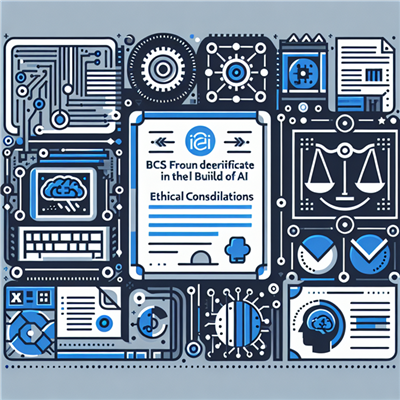
The world of IT is evolving at an unprecedented pace, and with it, the need to stay updated with the latest technologies is more important than ever. Among the many technologies that IT professionals need to be familiar with, Oracle SOA Suite stands out. Oracle SOA Suite is a comprehensive, hot-pluggable software suite that enables you to build, deploy and manage Service-Oriented Architectures (SOA).
Oracle SOA Suite Training is a must for every IT professional aiming to make a mark in the field of SOA. This blog aims to provide an introduction to Oracle SOA Suite and the importance of undertaking Oracle SOA training.
In today’s increasingly complex digital landscape, enterprises need a reliable and flexible system for integrating their diverse applications and services. The Oracle SOA Suite is a comprehensive middleware solution designed to address this challenge. It offers a robust platform for building, deploying, and managing service-oriented architectures (SOA) that can seamlessly integrate disparate systems. For IT professionals, understanding Oracle SOA Suite is essential to ensuring efficient system integration, workflow automation, and enterprise scalability.
In this guide, we will walk you through the fundamentals of Oracle SOA Suite, its architecture, key features, and why it is a valuable tool for IT professionals looking to enhance their technical skills.
What is Oracle SOA Suite?
Oracle SOA Suite is an integration platform designed to implement service-oriented architecture (SOA). It allows businesses to build, deploy, and manage services and applications that communicate with one another in a scalable and flexible environment. With SOA, services are loosely coupled, meaning each service can be independently developed, deployed, and maintained, leading to better adaptability and easier management of complex enterprise systems.
Oracle SOA Suite provides a set of tools and technologies to design, deploy, and manage these services while ensuring seamless interaction between applications. It supports a variety of service components, including web services, REST APIs, and business rules.
Key Features of Oracle SOA Suite
Oracle SOA Suite has several powerful features that make it a popular choice for businesses that require efficient application integration and process automation. Some of its most important features include:
1. Service Component Architecture (SCA)
Service Component Architecture (SCA) is the foundation of Oracle SOA Suite. It allows developers to create services as reusable components, making them easily configurable and scalable. SCA provides a flexible framework for defining how components interact, offering a clear separation between the business logic and integration logic.
2. Oracle BPEL Process Manager
The Oracle BPEL (Business Process Execution Language) Process Manager is one of the core components of Oracle SOA Suite. It allows developers to orchestrate business processes by coordinating multiple services into a single, integrated process. BPEL makes it easier to define and execute business processes that involve human intervention, web services, and automated tasks.
3. Oracle Service Bus (OSB)
Oracle Service Bus is a key feature of SOA Suite that enables intelligent routing, transformation, and validation of messages between different services. It acts as a lightweight mediation and integration platform, allowing enterprises to decouple the communication between services. With OSB, organizations can ensure secure and efficient communication between disparate systems.
4. Adapters for Enterprise Connectivity
One of Oracle SOA Suite’s strengths lies in its connectivity options. It offers a wide range of pre-built adapters for connecting to various enterprise systems, including ERP systems like Oracle E-Business Suite, CRM applications, and third-party applications like SAP. These adapters make it easy to integrate on-premise and cloud applications without needing custom code.
5. Business Rules Engine
Oracle SOA Suite includes a Business Rules Engine that allows businesses to create and manage business rules outside of the application code. This separation of business logic from application logic makes it easier to modify and update rules as business requirements change without redeploying the entire application.
6. Event-Driven Architecture (EDA)
Oracle SOA Suite supports event-driven architecture (EDA), enabling real-time responses to business events. With Oracle Event Processing, businesses can create automated workflows triggered by specific events. EDA is crucial for industries requiring rapid reaction times, such as finance and healthcare.
7. Human Workflow
The Human Workflow feature allows for the integration of human tasks into business processes. With Oracle SOA Suite, IT teams can create workflows that assign tasks to human users for review, approval, or other forms of interaction, enabling efficient task management within larger automated workflows.
8. Comprehensive Monitoring and Management Tools
Oracle Enterprise Manager provides comprehensive monitoring, management, and diagnostics capabilities for Oracle SOA Suite applications. IT administrators can monitor service performance, pinpoint bottlenecks, and perform root-cause analysis to ensure the smooth operation of integrated services.
Oracle SOA Suite Architecture
The architecture of Oracle SOA Suite is designed to support large-scale, complex integrations by enabling different components and services to interact seamlessly. Here is a breakdown of its core architecture:
1. Service Components
At the heart of the Oracle SOA Suite architecture are service components. These components represent the different functionalities that are deployed within the system. Each service component can perform a specific function, such as routing a message, transforming data, or managing business logic.
2. Service Bus
The Oracle Service Bus (OSB) plays a crucial role in the architecture by managing the communication between services. It mediates message traffic, transforms data formats, and ensures secure and reliable communication across the enterprise.
3. Business Process Orchestration
The BPEL Process Manager is used for orchestration, which means it coordinates the execution of multiple services. This is done by defining business processes in BPEL, which can involve multiple services, manual tasks, and other business logic. BPEL enables IT professionals to design complex workflows that integrate several services across different systems.
4. Adapters
Oracle SOA Suite includes a wide array of adapters that enable seamless communication between different systems and services. These adapters are crucial for integrating legacy systems, databases, messaging systems, and other enterprise applications into a unified SOA framework.
5. Enterprise Manager
The Oracle Enterprise Manager is responsible for monitoring and managing the SOA environment. It provides visibility into service performance and enables IT professionals to troubleshoot issues, configure alerts, and monitor key performance indicators (KPIs) for business services.
Why IT Professionals Should Learn Oracle SOA Suite
For IT professionals, mastering Oracle SOA Suite opens up a wide array of career opportunities in the enterprise IT landscape. Here’s why learning Oracle SOA Suite can be a significant boost for your career:
1. High Demand for Integration Experts
As businesses grow, the need to integrate diverse systems increases. Oracle SOA Suite is a go-to platform for organizations that want to streamline their IT infrastructure. Professionals who can manage and implement Oracle SOA Suite are highly sought after in sectors like finance, healthcare, telecommunications, and government.
2. Supports Enterprise Digital Transformation
In the era of digital transformation, businesses are increasingly looking to connect legacy systems with modern applications. Oracle SOA Suite offers a comprehensive solution for integration and orchestration, making it a key tool for professionals involved in digital transformation initiatives.
3. Scalability and Flexibility
One of the standout benefits of Oracle SOA Suite is its ability to scale as enterprises grow. IT professionals skilled in Oracle SOA Suite can design flexible, scalable architectures that can easily adapt to changing business needs.
4. Enhanced Career Prospects
Learning Oracle SOA Suite can lead to lucrative positions such as SOA Developer, Integration Architect, or Middleware Administrator. These roles often offer competitive salaries and the chance to work on cutting-edge integration projects.
Conclusion
Oracle SOA Suite is an essential tool for enterprises looking to streamline their integration processes and improve workflow automation. Its powerful architecture, flexibility, and wide range of features make it an invaluable platform for IT professionals. By mastering Oracle SOA Suite, IT professionals can position themselves as experts in service-oriented architecture, improve their career prospects, and contribute to the digital transformation of their organizations.
For those seeking to expand their skill set in enterprise integration, Oracle SOA Suite is an excellent starting point, offering both depth and breadth in terms of features, scalability, and real-world application.
In the fast-paced world of IT, staying updated with the latest technologies is vital. Oracle SOA Suite, with its wide range of applications, is one such technology that IT professionals need to be familiar with. Oracle SOA training from a reputed institution like Koenig Solutions can help you gain a thorough understanding of this technology and enhance your career prospects.







COMMENT